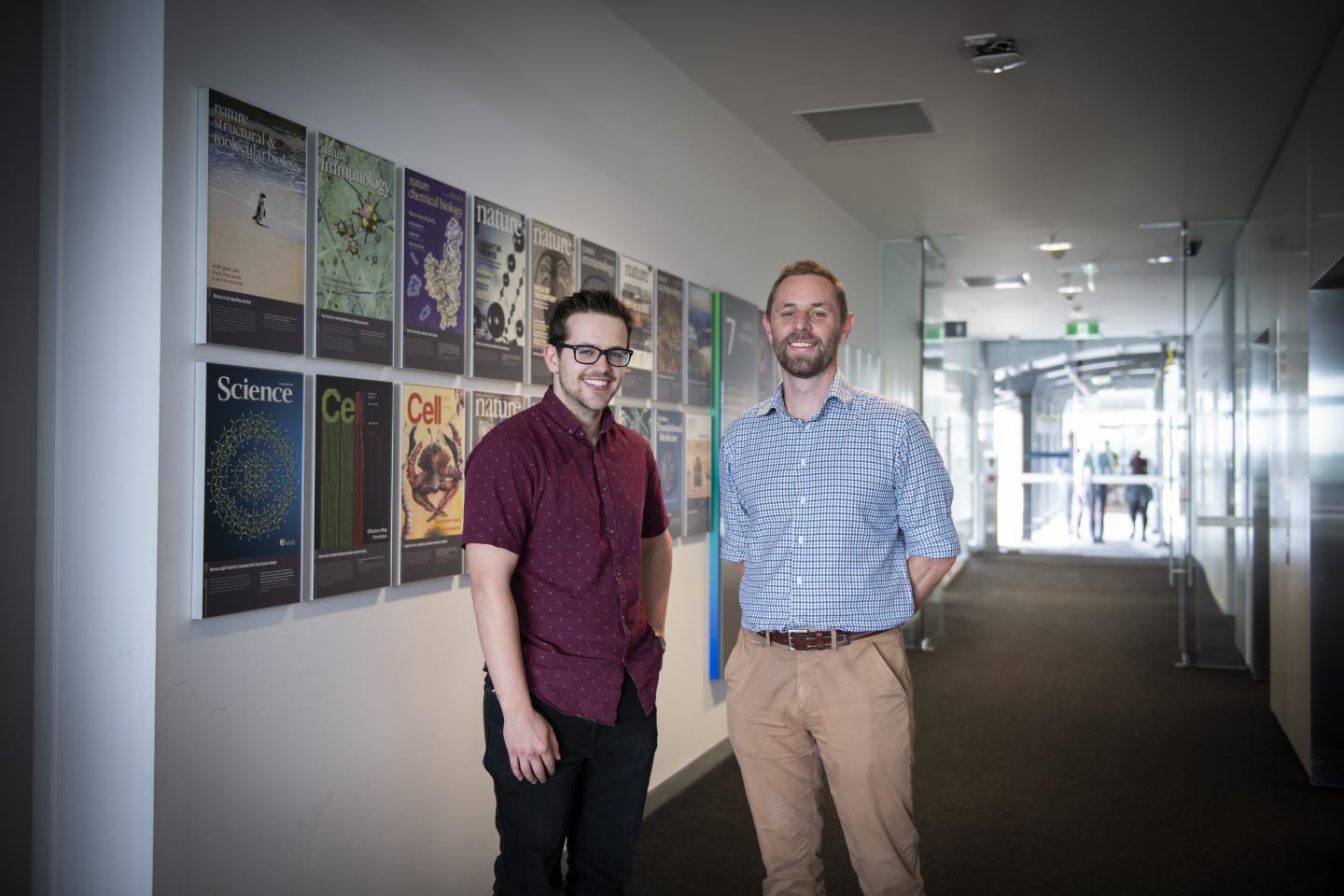Australian researchers have discovered how a protein linked to Parkinson’s disease may protect cells such as neurons in the brain

Credit: The Walter and Eliza Hall Institute
Australian researchers have discovered how a protein linked to Parkinson’s disease may protect cells such as neurons in the brain.
The study revealed how a protein called Parkin – which is lost in certain forms of Parkinson’s disease – ‘buys time’ for cells to repair internal damage that may otherwise kill them.
The discovery could underpin the development of new therapies that slow the progression of Parkinson’s disease by saving cells that would otherwise die. The research, led by Mr Jonathan Bernardini and Associate Professor Grant Dewson, was published in The EMBO Journal.
Protecting against Parkinson’s:
More than 80,000 Australians are living with Parkinson’s disease, a neurodegenerative condition characterised by the death of neurons and inflammation in the brain.
Mr Bernardini, a PhD student at the Institute, said the protein Parkin had been implicated in the development of Parkinson’s disease. “Parkin is absent or faulty in half the cases of early onset Parkinson’s disease, as well as in some other, sporadic cases.
“In a healthy brain, Parkin helps keep cells alive, and decreases the risk of harmful inflammation by repairing damage to mitochondria, which are responsible for supplying energy to cells.,” Mr Bernardini said.
Mr Bernardini said damaged mitochondria could trigger the cell’s internal death machinery, which removed unwanted cells by a cell death process termed ‘apoptosis’.
“We discovered that Parkin blocks cell death by inhibiting a protein called BAK.
“BAK and a related protein called BAX are activated in response to cell damage, and begin the process of destroying the cell – by dismantling mitochondria. This ultimately drives the cell to die, but low-level mitochondrial damage has the potential to trigger inflammation – warning nearby cells that there is potential danger,” Mr Bernardini said.
Buying time for repair:
The team showed that Parkin restrains BAK’s activity when mitochondria are damaged. Parkin tags BAK with a tiny protein called Ubiquitin.
Associate Professor Dewson said Ubiquitin was a ‘go slow’ signal for BAK.
“With normal Parkin, BAK is tagged and cell death is delayed. Parkin ‘buys time’ for the cell, allowing the cell’s innate repair mechanisms to respond to the damage,” he said.
“Without Parkin – or with faulty variants of Parkin that are found in patients with early-onset Parkinson’s disease – BAK is not tagged and excessive cell death can occur. This unrestrained cell death may contribute to the neuronal loss in Parkinson’s disease.
By understanding how cell death and inflammation occur in Parkinson’s disease, the researchers hope new therapies may be developed that could slow the progression of the disease.
“Drugs that can stifle BAK, mimicking the effect of Parkin, may have the potential to reduce harmful cell death in the brain,” Associate Professor Dewson said.
###
The research was supported by the Australian Government through schemes including the National Health and Medical Research Council, the Australian Research Council and a Research Training Program Scholarship, the Cancer Therapeutics CRC, and the Victorian Government.
Media Contact
Arunee Wilson
[email protected]
61-475-751-811




